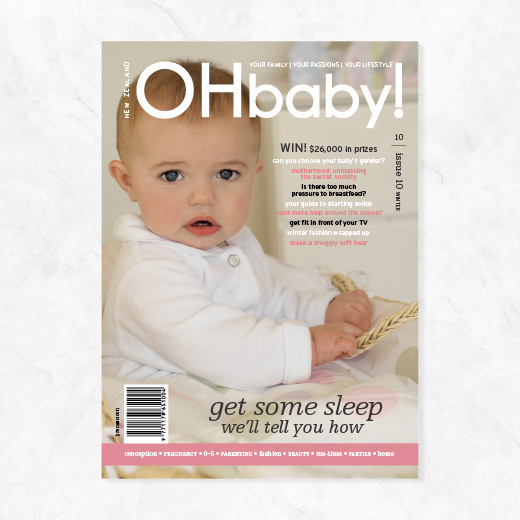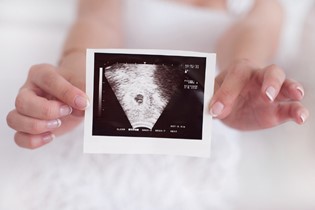Desperate for sleep

New parents reminisce about pre-baby days where a full night's sleep was the norm rather than a luxury, and practically salivate at the sight of their beckoning beds. Cherin Abdelaal Selim and Shelley Zintl reveal there is light at the end of the tired tunnel.
Got a newborn? Welcome to the world of postpartum fatigue (PPF). PPF describes the exhaustion and reduced capacity to perform physical and mental activities that new parents experience in the postnatal period. PPF is more than just sleepiness; it is a combination of being physically tired, mentally overwhelmed, and emotionally exhausted.
What causes PPF?
Pregnant women are commonly afflicted with sleep-stealing problems such as nausea, heartburn, night-time bathroom trips, and difficulty finding a comfortable resting position.
Birth, even a straightforward delivery, is an exhausting exercise. Particularly difficult births, and complications resulting in intensive intervention, take a significant physiological toll on a woman's body. Iron deficiency and anemia, which pregnant women and new mums are at greater risk of developing, also contribute to fatigue.
In addition to the physiological effects of pregnancy and birth, women can also become fatigued due to psychological or emotional factors. During pregnancy women often spend a lot of time planning for the birth and imagining how their child will enter the world. When actual birth experiences fall short of expectations, women often feel disappointment, grief, or anger - emotions that can be psychologically taxing.
Hormonal changes can wreak havoc with our ability to sleep well. For example, towards the end of pregnancy and immediately following childbirth, women experience a drop in their progesterone levels. Progesterone is known to have mild sedative effects so reduced levels can impact on sleeping. Changes in melatonin levels (the sleep-inducing hormone) are also common in the three months following childbirth.
A few generations ago, women stayed in hospital for a week or so after giving birth and were encouraged to rest and recover. "Rooming-out", where babies were taken to a nursery at night to allow mothers to sleep uninterrupted, was also the norm. These days, postpartum hospital stays tend to be short, and many women are heading home with their new babies just a few hours after giving birth. For those that do stay in hospital, the atmosphere is not usually conducive for sleep. While we now recognise the importance of "rooming-in" for bonding and the establishment of breastfeeding, mothers are no longer given the opportunity to rest and recover to the same extent before going home with their newborn babies.
Most adults, in ideal circumstances, will sleep for 7-9 hours per night. Sleep is divided into two phases: Rapid eye movement (REM) sleep and non rapid eye movement (NREM) sleep. During REM sleep, the brain is very active, while the body is essentially paralysed (presumably to prevent us acting out our dreams). REM sleep is often described as the time when our brain sorts through and "files" information that we have processed and learned throughout the day. REM sleep is thought to be responsible for ensuring optimal cognitive and memory function.
During NREM sleep, our brain is relatively inactive while our body is busy undergoing necessary repairs and restoration. NREM sleep can be further categorized into four stages: Stage 1 is a very light sleep which represents the transition from wakefulness to sleep, and stages 2-4 are progressively deeper levels of sleep. An average adult will cycle completely through these sleep phases approximately every 90 minutes, usually beginning with a significant chunk of NREM sleep (our body's priority for survival) then moving into REM sleep. Because a baby's sleep cycle is much shorter than an adult's, it is very typical for mothers to be woken before they have had sufficient (if any) REM sleep. When baby's needs have been met, mothers will go back to sleep and the sleep cycle begins again (it does not pick up where it left off). This means that even if mothers manage to get the same quantity of sleep they had pre-baby (which most do not), this sleep is likely to be fragmented and significantly deficient in REM sleep.
Caring for a new baby also means significant lifestyle changes. Where once a woman was able to meticulously plan her day, she may now feel overwhelmed by the sheer number of jobs she needs to complete within a shortened amount of time. The unpredictability a newborn brings can leave the new mother feeling on edge and living her day reactively, according to the ever-changing needs of her baby. This sudden lack of control can be very emotionally draining.
Furthermore, not all babies are alike, and some are much harder to care for than others. For example, babies with difficult temperaments, developmental problems, or physical complications such as reflux, will all demand more care and attention. As well as experiencing more disrupted sleep, mums may also be emotionally fatigued by worry about their baby's health and development.
|
What are the effects of postpartum fatigue? |
How long will I feel like this?
Many first-time mothers eagerly await the six-week milestone because they have been told that things get easier at this point. However, most will agree that "easier" is a very relative term, and fatigue can continue for much longer than this. Recent research suggests that symptoms of fatigue become progressively worse over the first six weeks after baby is born, but the actual period of PPF is defined as the first 12 weeks of baby's life. For around 50% of women, symptoms will persist to some degree for up to 18 months.
|
What can I do to minimise PPF? |
Although PPF is unpleasant, it is temporary. Take advantage of whatever support you can get and take care of yourself. Remember that babies do eventually turn into teenagers who struggle to get out of bed before midday, so a full night's sleep will once again be the norm for all. And, in that strange irony of life, you will probably find yourself looking at your teenager and reminiscing about the baby days, all memory of fatigue forgotten.
|
Cherie Abdelaal Selim and Shelley Zintl run Child and Family Psychology Services in Canterbury, a specialist consultancy providing comprehensive assessment and treatment options for babies, children, adolescents, and families. Their services include sleep, behaviour, development, parenting, family relationships, anxiety, and depression. For more information, visit www.childfamilypsychology.co.nz |

AS FEATURED IN ISSUE 10 OF OHbaby! MAGAZINE. CHECK OUT OTHER ARTICLES IN THIS ISSUE BELOW

















